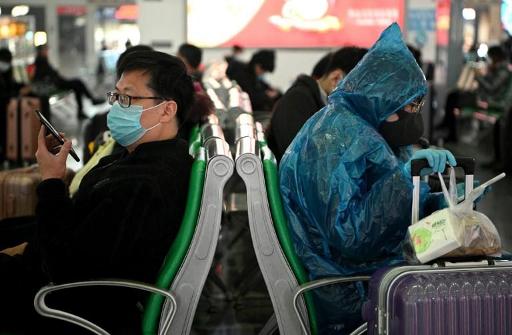Patients infected with the new coronavirus in Belgium could be slipping through the cracks due to overly-stringent screening criteria, according to the director of the lab which detected Belgium's second confirmed case at the weekend.
"The criterium that is being followed to test people who might be infected with the coronavirus is too strict and I think we are missing cases," Prof. Dr Herman Goossens, director of the University of Antwerp's Laboratory of Medical Microbiology, told The Brussels Times.
On Monday, Goossens said that his lab's detection of the second confirmed case of the new Covid-19 coronavirus in Belgium came after he decided to no longer follow official guidelines, in what he said underscores the need for authorities to adopt a wider approach to testing for the disease.
Related News
- What we know about Belgium’s coronavirus patients
- Belgium enters Phase 2 for coronavirus: what does it mean?
- Coronavirus: 'Anyone with flu symptoms should be tested'
- Coronavirus: 6 new cases in Belgium on Monday
- Travellers returning from northern Italy urged to be 'extra vigilant' of coronavirus symptoms
- Coronavirus: masks are of 'little use' for healthy people, says Belgian virologist
"I think there is a risk that these cases are spreading the virus in the community without [authorities] realising that this is happening," said Goossens, who also heads PREPARE, an EU-funded institute for clinical research on epidemics.
"Like I tweeted this morning: 'Test and you will find'," Goossens said, in statements which come after the number of confirmed cases in Belgium surged from two to seven in the space of three days, not counting the first patient to test positive for the virus, who authorities said has since recovered.
Stop the spread before it's 'too late'
To actively prevent the outbreak from continuing to spread in the country, Goossens said Belgium should follow in the footsteps of the Netherlands, the United Kingdom or Italy and broaden the testing criteria, rejecting claims by federal authorities who said that doing so would be a "waste of time and resources."
"I don't think it's a waste of money —we do a lot of things that are wasteful— and I think it doesn't represent a huge cost to test patients who might be infected, because you can prevent the virus from spreading in the community, which has a much bigger cost."
"Once it spreads more widely in the community, it will be too late to contain it," he added, underscoring that the outbreak in Belgium could "absolutely" reach the proportions that it had in Italy, which has the third biggest rate of confirmed cases globally, after China and South Korea.
As the number of confirmed cases of the virus surge "exponentially" in Europe, Goossens also said that operating with a single laboratory of reference for Covid-19 testing was "not tenable."
"We have one reference lab where all the specimens should be sent for testing and I don't think that makes sense, I don't think that's tenable," he said. "It is not a difficult test, it doesn't take that long and [testing] can be done in many, many more labs in Belgium."
Gabriela Galindo
The Brussels Times

